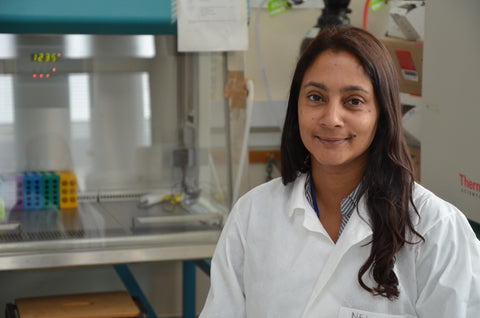A simple blood test could help diagnose high-grade brain tumours in the future, sparing patients from high-risk surgery. The new technique has been proven for glial tumours including glioblastoma (GBM), the most commonly diagnosed high-grade brain tumour in adults.
The findings of a clinical study which took place at the Brain Tumour Research Centre of Excellence at Imperial College London and Imperial College Healthcare NHS Trust could mean patients with suspected high-grade gliomas, including GBM, astrocytomas and oligodendrogliomas could get quicker confirmation of the presence of a glioma tumour, potentially speeding up the start of their treatment.
The technique could also eliminate the need for surgical biopsies which carry significant risk, particularly for those with underlying health conditions, and is inexpensive and simple to implement in the clinical setting, meaning that it could easily be adopted by clinicians to improve care.
The TriNetra-Glio blood test works by isolating tumour cells that have broken free from the tumour circulating in the blood. The isolated cells are then stained and can be identified under a microscope. The work has been funded by Datar Cancer Genetics and patients with suspected high-grade tumours could benefit from this breakthrough in as little as two years.

Dr Nelofer Syed, who leads our Centre at Imperial, said: “A non-invasive, inexpensive method for the early detection of brain tumours is critical for improvements in patient care. Through this technology, a diagnosis of inaccessible tumours can become possible through a risk-free and patient-friendly blood test. We believe this could be a world-first as there are currently no non-invasive or non-radiological tests for this type of tumour."
The work was published in the International Journal of Cancer.
To find out more about this exciting breakthrough, including what it could means for patients, read our blog.
Related reading:

